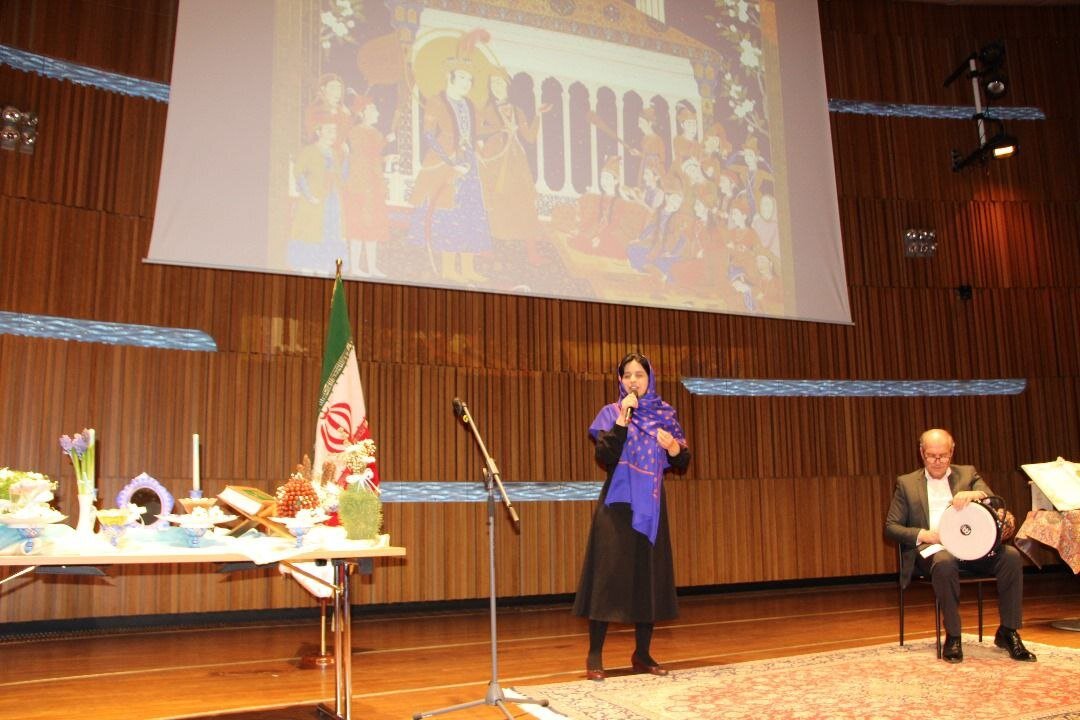100 years of diplomatic relations between Iran, Czech Republic celebrated with naqqali performance

TEHRAN-On the occasion of the global celebration of Nowruz and the beginning of the new solar year, as well as the centenary of the establishment of diplomatic relations between Iran and the Czech Republic, a special ceremony featuring naqqali (traditional Persian storytelling) and traditional Iranian music was held in Prague, the capital of the Czech Republic.
The event was organized by the Embassy of the Islamic Republic of Iran in Prague, in collaboration with the Islamic Culture and Relations Organization and the ECO Cultural Institute, Honaronline reported.
It was attended by ambassadors and diplomats from Nowruz-region countries, including Pakistan, Afghanistan, Turkey, Azerbaijan, and Kazakhstan, as well as other officials, several Iranologists, Iran enthusiasts, and members of the Iranian community.
At the beginning of the ceremony, Seyed Majid Ghafeleh Bashi, Iran's ambassador to Prague, highlighted the significance of Nowruz as a shared cultural identity marker across the vast Nowruz region and its reflection in Iranian literature, music, and other cultural and artistic expressions over the centuries.
The main part of this cultural and artistic event was a bilingual naqqali performance by Bahareh Jahandoost, an Iranian storyteller and Shahnameh reciter. This marked the first time such a performance was held in Prague and was warmly received by the audience.
Jahandoost narrated the story of the naming of Nowruz by Jamshid and the tale of Bijan and Manijeh from the Shahnameh, the legendary Persian epic by Ferdowsi, in both Persian and English. Her performance was accompanied by zarb (an Iranian goblet drum) played by Saeed Gorjami, a veteran of traditional Zurkhaneh music residing in Europe.
Naqqali, or Persian epic storytelling, is the oldest form of narrating tales in Iran and has long played a significant role in society. A naqqal is a storyteller who recites epic tales, primarily revolving around the stories of Iranian mythological kings and heroes.
Bahareh Jahandoost has been involved in theater since she was seven years old, and she trained with the renowned Iranian naqqal, Morshed Vali-Allah Torabi. Using the traditional form of narrating stories through naqqali performance, she has performed in China, France, Hungary, India, Italy, Russia, and Turkey.
At the ceremony, guests were also introduced to the elements of the Iranian Haft-Seen table, which is an arrangement of seven symbolic items whose names start with the 15th letter in the Persian alphabet (pronounced as “seen. It is traditionally displayed at Nowruz, the Iranian New Year, which is celebrated on the day of the vernal equinox, marking the beginning of spring in the Northern Hemisphere.
The ceremony served as a symbol of the ongoing cultural and civilizational ties between Iran and the Czech Republic, continuing over a century of cultural interaction between the intellectuals and people of both countries.
Photo: Bahareh Jahandoost (L) and Saeed Gorjami perform at the ceremony in Prague, the Czech Republic.
SS/
Leave a Comment